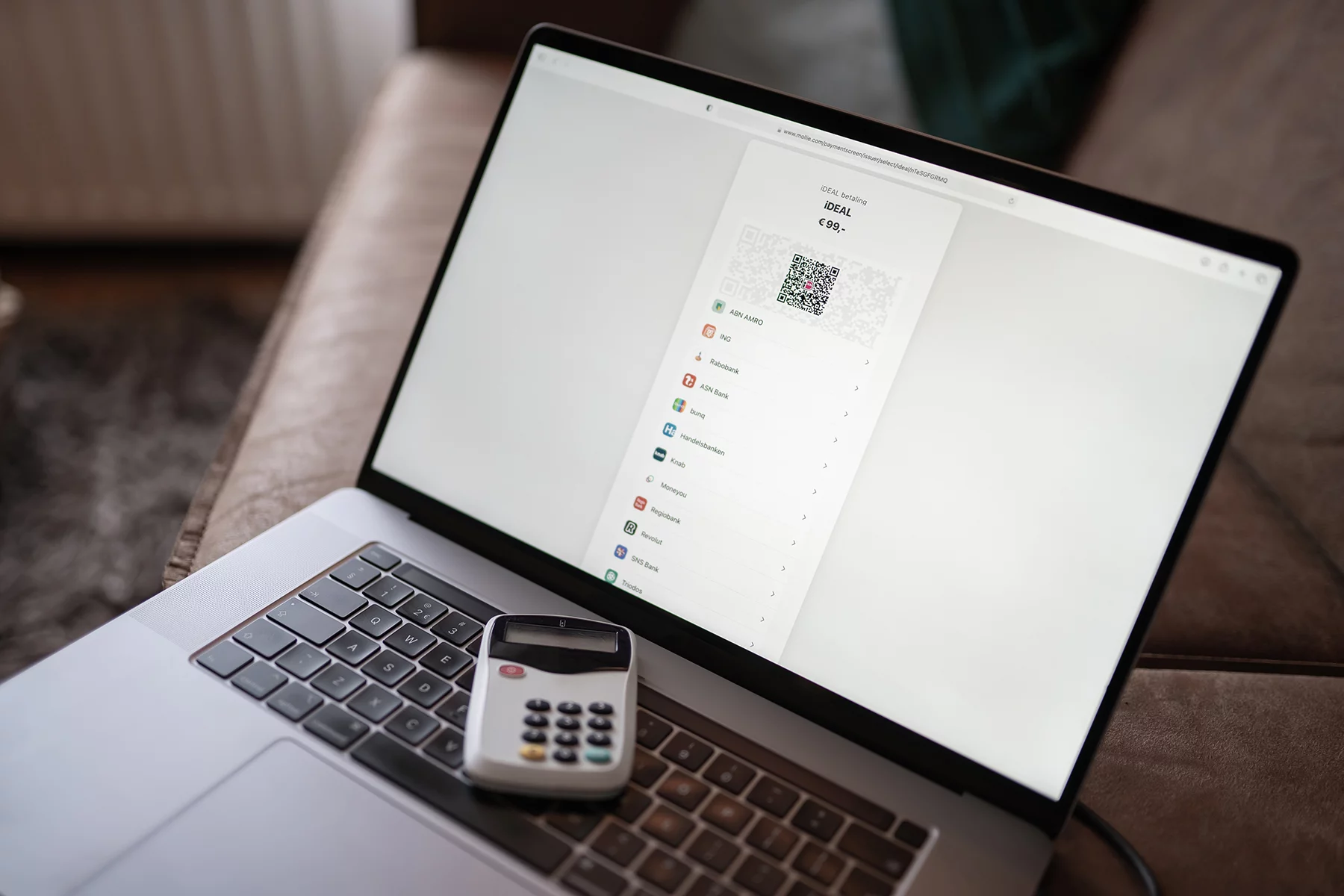The Netherlands is a great place to run a business. It’s relatively inexpensive to set up your business, and the economy is very stable. Furthermore, it ranks fourth in the 2021 IMD World Competitiveness Rankings, which measures economic performance, government efficiency, business competency, and infrastructure.
There’s a lot to consider when starting a business in the Netherlands. Read on to find out how to handle your finances and the day-to-day running of your business. We cover:
- Administrating your business in the Netherlands
- Starting a business in the Netherlands
- Business banking in the Netherlands
- Business insurance in the Netherlands
- Dutch business accounting
- Making an invoice in the Netherlands
- Organizing your Dutch business taxes
- Hiring staff in the Netherlands
- Social security considerations for freelancers
- Useful resources
HBK Tax Advisors, Accountants, Tax Consultants
At HBK, a dedicated team of six consultants serve their clients with great enthusiasm and a personal approach. The team can apply their particular expertise to provide affordable, practical and tax-efficient support to expats in various fields.
Administrating your business in the Netherlands
Whether you’re a freelancer or have set up a company, it’s vital to keep up with all aspects of business administration. This means that you need to keep an eye on your finances – including invoices, bank statements, and tax bills. You should make a record of all of these, and by law, you must retain them for at least seven years.
Starting a business in the Netherlands
There are several steps to setting up a business in the Netherlands. EU citizens can set up a business without any additional requirements. However, entrepreneurs from outside the EU will need to apply for a residence permit or a start-up visa.
You will also need a business bank account and decide whether you want to become a freelancer (ZZP’er), a sole trader (eenmanszaak), or set up a company or partnership. Once you have a name for your company and have decided on a legal structure, you must register with the Chamber of Commerce (Kamer van Koophandel – KVK).
Business banking in the Netherlands
If you run a company in the Netherlands, you should open a business bank account. It’s not obligatory to have separate personal and private bank accounts, but it is recommended. Your business bank account will be in your company name, and you’ll also have the option to receive payments with iDeal. It makes keeping straight accounting records much easier, especially in case the Belastingdienst (Dutch tax authority) audits your company. Finally, it’s also a better option if more than one person needs access to the account.

For ease of access, you might want to open a bank account with an online or mobile bank such as:
Dutch banks have to comply with strict reporting laws for any American clients, which complicates the administration of setting up a Dutch business account, so these international mobile banks may make your life much easier.
When you open a business bank account, you’ll need to provide your name, a form of ID, and proof of your BSN. You might also need to have a meeting (either in person or online). Non-EU citizens also need to have a residency permit.
Business insurance in the Netherlands
As an entrepreneur, you face different risks than employees. These include not having any income if you’re unable to work due to illness or an accident, or being held responsible for mistakes or damage caused by your company. Therefore, you should evaluate the risks when you run a business in the Netherlands – one way to mitigate these is with business insurance. Many Dutch insurance companies can help you decide which insurance your company needs. These include:
There is a wide range of insurance products you need to consider when setting up a business. We’ve listed some of the most common policies to give you an idea. However, remember that each business is different, and you’ll need to decide what cover is in line with your company’s strategy.
It’s also important to note that in the Netherlands, you’ll need health insurance, which you can find out about further down the page.
Professional indemnity insurance
Professional indemnity insurance (Beroepsaansprakelijkheidsverzekering, BAV) protects you in case of an error on your part. It’s mandatory for several types of professions, including financial advisors. In addition, if you work as an entrepreneur for a company, they might also require that you take out professional indemnity insurance before working for them.
Professional indemnity insurance covers financial damage resulting from a professional error, loss of documents, and certain legal costs. It does not insure you for damage to property or people, costs for redoing work, or intentional or criminal damage.
Business liability insurance
Business liability insurance (Bedrijfsaansprakelijkheidsverzekering, AVB) is similar to BAV – it covers you for risks associated with the work you carry out. However, it insures against the risk of liability in case of injury or damage to property. While it’s not compulsory, a client or supplier might require that you take it out. As a freelancer, this insurance is highly recommended, as your personal liability is engaged with the business.

Over 90% of businesses (including freelancers) take out AVB, as it covers a broad range of risks. These include damage caused by your work (or that of your employees) or your product. It also protects you against liability for damage to employees’ belongings, equipment you’ve borrowed or rented, and buildings. You can also take out supplementary cyber insurance (in Dutch) to protect against online risks.
Buildings insurance
If you own a property for your business, it’s good to take out buildings insurance (opstalverzekering). This type of insurance means that, in the event of damage to your property, you’ll be able to cover the costs of repairing or rebuilding it. Check which causes are covered by your insurance provider. Buildings insurance isn’t mandatory, but the bank might demand that you take it out when applying for a mortgage. It’s also simply a safe bet, as repairs can be extremely expensive.
Other types of insurance that you might want to invest in for your physical property and contents include:
- Business loss insurance (bedrijfsschadeverzekering – in Dutch): protects you in case of loss of income
- Inventory insurance
- Goods insurance
Legal expenses insurance
Legal expenses insurance (Zakelijke rechtsbijstandverzekering) is non-mandatory business insurance that insures you for legal assistance. For example, if you face a conflict with a supplier, employee, or customer, the insurer will try to resolve the dispute for you. Check with your provider to determine if they also cover mediation and legal advice.
Dutch business accounting
All records must be kept as both digital and hard copies for seven years (for data relating to immovable property, this goes up to 10 years). After all, accidents happen, and records mustn’t get lost. This is where printing every incoming and outgoing invoice, proof of payments, and significant correspondence is advisable. Be sure to have all of your devices backed up as well.
The documents you need to keep include:
- stock records
- general accounts
- payroll accounts
- purchase and sales records
- credit and debit accounts
- data relevant to the taxation of third parties
Keeping a record of this information is not only obligatory, but it will also help you file your taxes.
Filing annual accounts
Certain types of businesses must file annual accounts. These include private and public limited companies (bv and nv), cooperatives, and mutual insurance companies. Sole proprietors and certain types of subsidiaries do not need to file annual accounts, but might need to submit an accountant’s report.
Which statements you need to file depends on whether your business is classed as micro, small, medium, or large. You can find out on the KVK’s website which category your business falls into based on assets, turnover, and number of employees. Micro and small businesses only need to provide a limited balance sheet with explanatory notes, while medium and large business categories must provide more detailed reports.
Since 2016, micro and small companies have had to file their accounts online using Standard Business Reporting (SBR). This will likely be the case for medium and large companies from 2023 onwards. You will need your email address and passwords, eHerkenning, or an access code to file your accounts online. For detailed instructions, visit the KVK’s website.
When to file your accounts depends on when your company’s financial year runs and when the accounts were adopted.
Making an invoice in the Netherlands
Whether you’re a freelancer or a large business owner, you’ll need to provide invoices to your business clients for products and services. Each invoice must include:
- Your BTW identification number (btw-identificatienummer)
- BTW amount
- invoice date
- your name and address
- your customer’s name and address
- the Dutch Business Register number (KVK-nummer) of your company
- details of the goods or services
- quantity of goods or services
- when they were supplied
- the BTW identification number of your customer, and, if the customer is in another EU country, ‘VAT shifted‘ in Dutch, English, French, or German.
You must also include an invoice number and send the invoice by the 15th day following the month when you supplied the service. It also makes sense to state a payment term on the invoice (the deadline is automatically 30 days later for business-to-business clients, unless you specify otherwise). For amounts under €100 (including BTW), you can send an invoice that only includes the names and addresses, VAT amount, invoice date, and goods and services supplied. Keep hold of your invoices for seven years.
What to do if a customer does not pay your invoice
Occasionally when you run a business in the Netherlands, you might come across a client who neglects to pay your invoice within the agreed period. Should this happen to you, there are several steps you can take to ensure you receive your payment.

First, check with your client to make sure the invoice is correct. Sometimes, it could simply be that the payment has slipped the client’s mind. If they have still not paid after a few days, send a written reminder (betalingsherinnering). Your next step will be to send a formal notice letter (aanmaning) by regular post and post with confirmation of receipt. You can also send it by email. This letter should include the following:
- referral to the delivery, invoice, any telephone calls, and payment reminder
- deadline for payment within 14 days
- a mention of collection costs and legal action if the payment is not made
If none of the reminders work, you can claim collection costs and charge statutory interest. You can also agree on a payment arrangement if the customer cannot pay within the agreed time. Make sure you keep this in writing. Your final steps should be to engage a debt collection agency (incassobureau) or seek legal assistance. You can find more details on these steps on the Dutch Government’s business pages.
Organizing your Dutch business taxes
Self-employed workers in the Netherlands are responsible for registering their business with the Dutch tax authority (Belastingdienst) and submitting their tax returns. If you are self-employed (for example as a ZZP’er), you pay tax on your profits through your income tax. You will need to file your income tax annually and, unless you are exempt, your VAT (BTW) quarterly. On the other hand, corporate tax rates apply to partnerships and limited companies, and filing is much more complicated.
There are many tax advantages to owning a business in the Netherlands. For one, companies don’t typically need to pay the traditional 21% VAT that individuals do. This means that if you buy a laptop for €121, you will get €21 back from the government at the end of the quarter.
To offset some of the costs of running a business in the Netherlands, private entrepreneurs can also benefit from several extra tax deductions: the Entrepreneurs Deduction (ondernemersaftrek), general tax credits, and labor tax credits.
The Entrepreneurs Deduction allows for the following tax exemptions:
- The general self-employment deduction allowance (zelfstandigenaftrek)
- Research and Development activities (aftrek voor speur- en ontwikkelingswerk)
- Co-operating partner deduction (meewerkaftrek)
- Start-up deduction in case of disability (startersaftrek bij arbeidsongeschiktheid)
- Liquidation deduction (stakingsaftrek)
Paying BTW
To file BTW returns, you must get your BTW number (BTW-nummer) from the Belastingdienst, which you receive when you register your business at the KvK. Currently, the standard BTW rate in the Netherlands is 21%, with a reduced rate for certain activities of 9%. It is your responsibility to request an additional 21% on each invoice sent to clients.
If you provide services to other EU countries (in Dutch), you must include your client’s VAT number with ‘VAT shifted’ on the invoice. You usually do not charge BTW in these circumstances. Outside the EU, you charge 0% BTW.
You file BTW returns electronically no later than one month after the last day of each quarter. You will need your username and password, which you should have received when registering at the KvK, to file your BTW return. File your BTW return and check its status on Mijn Belastingdienst Zakelijk.
Good to know: certain types of freelancers do not need to charge and therefore file for BTW. The KvK will advise you about this when you register your business. Additionally, in some instances, you can also get authorization from the Belastingdienst to file your BTW yearly instead of quarterly.
The 30% ruling
Expat freelancers starting a business can qualify for a tax exemption on 30% of their earnings for five years. The 30% ruling is an allowance for working and living costs for workers hired from abroad, but it can apply to self-employed professionals if they structure their business as a limited company (BV) rather than a sole proprietorship (eenmanszaak).
You must register with the Dutch tax office (Belastingdienst) for payroll tax, and go on the payroll as an employee of your company, to be eligible for the 30% rule. However, keep in mind that you will have to pay corporation tax as a BV. A tax expert can advise you on this.
Tax advice for entrepreneurs in the Netherlands
Whether you’re a new arrival or have called the Netherlands home for a few years, getting to grips with the Dutch tax system can be fairly complicated. This is especially true if you’re starting your own company.
However, thankfully, there are many expat-friendly tax advisors in the Netherlands. These can help with tax-related issues, offering advice and information in English or other languages. Expat-friendly tax advisors in the Netherlands include:
Business.gov.nl provides a list of several Dutch organizations that can provide information for freelancers and self-employed professionals. In addition, you can find a list of tax advisors in the Netherlands in our directory.
Hiring staff in the Netherlands
Once your business starts to grow, and there’s more to do than you can manage by yourself, you might think about hiring some employees. If you’re hiring people other than freelancers and entrepreneurs, you’ll become an employer.
How to hire staff in the Netherlands
You’ll first need to register as an employer with the Belastingdienst, who will give you a payroll tax number. This number will allow you to deduct payroll tax from salaries and file a return. You must also notify the KvK that you are employing staff.

Your next steps will be to check your employee’s identity and set out an employment agreement (such as a contract). It must adhere to your sector’s collective labor agreement (Collectieve Arbeidsovereenkomst, CAO). Be sure to include agreements on:
- Salary
- Business and working hours
- Holiday leave and pay
- Sickness leave and pay
You can read more about the regulations for recruiting and hiring staff on the Dutch government’s business pages.
Employee rights and benefits in the Netherlands
When employing staff, you must make sure that you stick to the labor laws in the Netherlands. You must pay your staff at least the minimum wage (€1,725 per month for staff aged over 21 in 2022) and treat employees equally, regardless of religion, age, race, gender, disabilities, and other grounds.
Besides salary, you might need to consider other costs of hiring staff. These include:
- Pensions through a fund or insurer – this is sometimes mandatory, so check the relevant CAO
- Insurance
- Expenses for travel and other material benefits
- Payroll taxes
- Social security contributions
Social security considerations for freelancers
When you run a business in the Netherlands, you will pay your social security through income tax. This includes several schemes for old-age pensions, surviving partner benefits, long-term care, and child benefits. While employees in companies have compulsory insurance for illness, invalidity, and unemployment, freelancers do not. Therefore, if you wish to receive benefits in the case of illness or being unable to work, you should organize these yourself. Below, we outline what you should take into account.
Healthcare insurance
No matter your employment status, you require health insurance in the Netherlands. This is a standard payment you make to a health insurance company each month.
Some expat-friendly health insurance providers include:
Alternatively, you can opt to sign up with an international health insurance company, knowing your policy can follow you wherever your entrepreneurial spirit takes you:
Like employees, you may be entitled to receive an income-based benefit (zorgtoeslag) from the Belastingdienst to supplement your health insurance payment.
If you want to get additional insurance to cover long-term illness or disability, you can check out the Dutch ministry of social affairs website.
Pensions and retirement in the Netherlands
Whether you’re an employee or run a business, everyone in the Netherlands must pay into the state’s old-age pension scheme (Algemene Ouderdomswet, AOW). This usually forms part of your annual income tax. The amount you receive upon retiring depends on how long you have been making payments, and your family situation. If you wish to supplement your pension with another provider or through insurance, you should organize this yourself. These are some options to build a nest egg for your later years:
- If you were previously employed in the Netherlands, you may be able to contribute to the pension that you were already building up with your employer. Typically you need to apply to do this within nine months of leaving your job.
- Some banks and insurance companies offer pension plans. These plans invest in things like the stock market, bonds, and more.
- Investing in a brokerage account to ensure your retirement is smart. Reputable companies include Vanguard and eToro. These companies would invest your money, for example, in an ETF or individual stocks. You only have to deposit the funds and choose where you invest.
Other social security benefits for running a business in the Netherlands
There are several types of insurance you can take out to ensure you receive an income when you cannot work. For example, private occupational disability insurance is available. Self-employed professionals also organize broodfonds, whereby each person contributes a monthly amount. Should someone be unable to work due to illness, they receive a monthly payment from the fund. If you have previously been employed, you might also be able to use schemes from your former employer.
While you are not entitled to unemployment benefits as a self-employed professional, you might be able to access financial support under the Decree on Social Assistance to the Self-Employed (Besluit bijstandverlening zelfstandigen, Bbz).
ZZP’ers who become pregnant can register for maternity benefit through the UWV, and receive the same level of benefits as salaried employees. Freelancers and self-employed people are also entitled to receive a prenatal and childbirth allowance (Zelfstandig en Zwangerregeling, ZEZ) and childcare benefits.
Useful resources
- Business.gov.nl – Dutch Government information for entrepreneurs covering all administrative questions
- Mijn Belastingdienst Zakelijk (in Dutch) – Tax authority website with details on filing your taxes as a self-employed professional
- Kamer van Koophandel (KVK) – Dutch Chamber of Commerce offering advice and guidance for when you set up and run a business in the Netherlands
- Sociale Verzekeringsbank – explanations of different Dutch social security benefits










